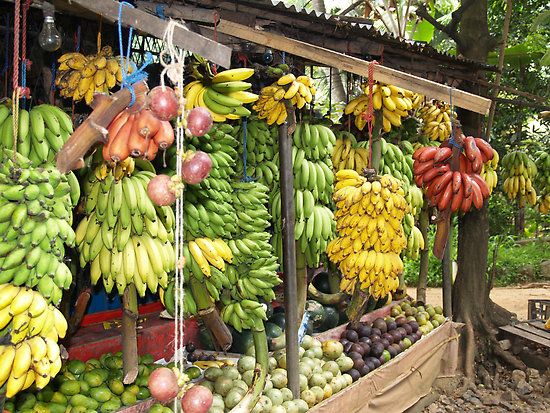January, 18, 2017

The effects of domestic NTBs on agricultural export growth
A study by Verité Research (VR) together with the Lanka Fruit and Vegetables Producers, Processors and Exporters Association (LFVPPEA) found that domestic barriers faced by Sri Lankan exporters at the border of their own country to be a significant problem. These barriers exist especially for agricultural exports, which can enrich the rural and farm economy. Agricultural exports, especially perishables, suffer the greatest difficulty within the country, not outside.
The study identifies three types of domestic barriers that the export sector face when dealing with border agencies in Sri Lanka; 1) Regulatory barriers, 2) Administrative barriers and 3) Information barriers.
Fixing domestic barriers: The Need for Introspection
These domestic barriers, also called Non-Tariff Barriers (NTBs), refer to barriers traders face at the border of a country. These include cumbersome border procedures that cause unnecessary delays and add to cost of trading. These barriers significantly undermine the trade competitiveness of Sri Lankan products in the international market. Therefore, removing these barriers is critical to revive exports.
The external barriers faced by Sri Lankan exporters abroad have received much attention. The government has taken initiatives to remove these barriers by entering into free trade agreements with a number of countries (e.g. India, China). However, very little effort has been made to remove domestic barriers. This is despite the fact that addressing domestic barriers is far easier than trying to persuade foreign governments to reduce the barriers they impose on Sri Lankan products through trade agreements. Given below are some examples of the barriers faced by agricultural exports in Sri Lanka:
1. Regulatory Barriers: The Act was passed 17 years ago, but plant protection regulations are yet to be published
Outdated regulations undermine both export potential and the safety and quality of agricultural products traded. Sri Lanka enacted the Plant Protection Act of 1999, which aims to protect plants in Sri Lanka from foreign pests and diseases. However, to give effect to the Act, the Minister of Agriculture must publish regulations aimed at protecting Sri Lankan plants from foreign pests and disease. It has been 18 years since the Act was put in place, and regulations are yet to be published. Instead, the import of plants and plant material today is governed by regulations published 36 years ago, in Extraordinary Gazette No. 165/2 of 1981.
2. Administrative barriers: After 8 years of peace, security checkpoints continue to undermine export competitiveness
Every hour of delay caused by various administrative procedures adversely affects the quality and competitiveness of perishable agricultural exports. At present, exporters are checked for regulatory compliance by three border agencies – National Plant Quarantine Service, Sri Lanka Customs and Sri Lankan Cargo. Yet in addition to this, exporters have go through an additional security check by the Sri Lankan Airforce at the entrance to the airport.
This increases the time in transit, adds to the cost of exporting and compromises the quality of the products. The inspections are carried out in an open area without any temperature controls. Perishable products which are pre-cooled for several hours prior to packing are frequently exposed to heat and contamination during inspection. Further, the aisle that is left empty in the lorry for an Airforce officer to inspect products reduces the loading capacity of a lorry to 80%, and increases the transport cost.
3. Information barriers: Time and cost of finding information is high in Sri Lanka
Making information available online can help significantly reduce time and cost of looking for information. Research revealed that government agencies in Sri Lanka lag far behind in terms of disseminating relevant information online. Applications for export and import permits are not made available online, and when they are available, the forms are outdated. This compels traders to physically visit the relevant agencies to obtain the application forms. Despite almost all relevant government agencies having websites, even basic information such as points of contact on the relevant government websites are often incorrect. Further, communication of changes to regulations are often delayed or obtained through third parties, adding to the transaction costs experienced by traders.
Efficiency of border procedures: Sri Lanka lags behind regional peers
The time and cost taken to comply with numerous government border regulations are a significant factor affecting the international competitiveness of Sri Lankan products. Sri Lanka’s global ranking for the efficiency and transparency of border administration went down from 87th place (2014) to 97th (2016) out of 136 countries, according to the Global Trade Enabling Index. Sri Lanka lags behind regional peers such as Thailand (44th), India (75th) and Vietnam (86th). According to Doing Business Index 2017 of the World Bank, it takes 76 hours on average to comply with export documentary requirements in Sri Lanka compared to 11 hours in Thailand, 38 hours in India and 50 hours in Vietnam. Thus, addressing domestic barriers will undoubtedly help enhance competitiveness of Sri Lankan products vis a vis other countries.
These examples are only a few of the numerous barriers agricultural exporters face at the Sri Lankan border. The negative impact of these domestic barriers on the international competitiveness of Sri Lankan products is significant. Yet, while much attention has been given to removing barriers abroad through trade agreements, there has been little attention given to removing barriers exporters face in their own country. If Sri Lanka is to achieve its export targets and accelerate export growth, identifying and reducing domestic barriers to trade should remain a priority.